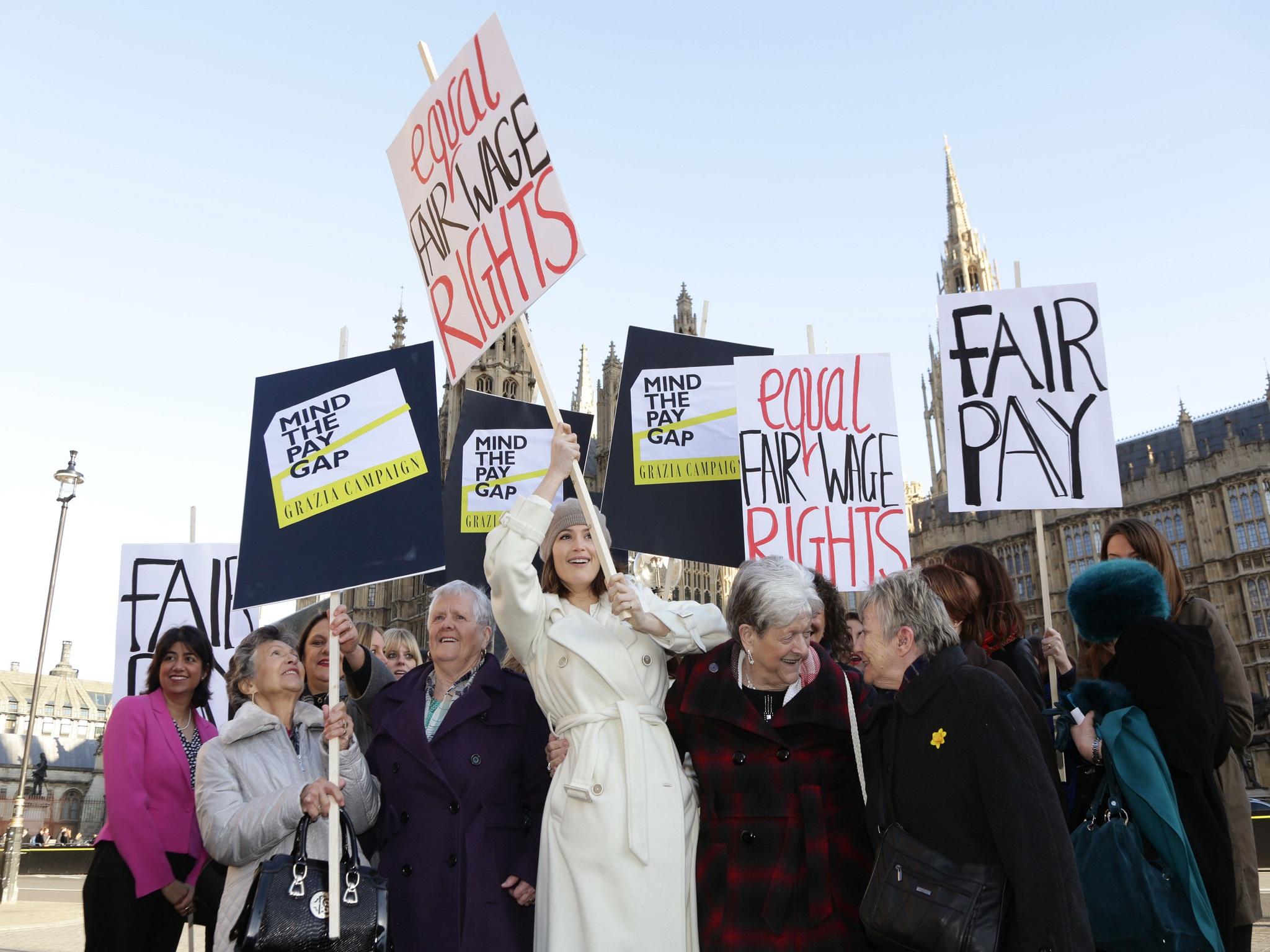New laws that will change the UK in 2018, from exposing the gender pay gap to warmer homes
A rise in the minimum wage and crackdowns on drone use, illegal immigrants and cyber-criminals are on their way next year

Your support helps us to tell the story
From reproductive rights to climate change to Big Tech, The Independent is on the ground when the story is developing. Whether it's investigating the financials of Elon Musk's pro-Trump PAC or producing our latest documentary, 'The A Word', which shines a light on the American women fighting for reproductive rights, we know how important it is to parse out the facts from the messaging.
At such a critical moment in US history, we need reporters on the ground. Your donation allows us to keep sending journalists to speak to both sides of the story.
The Independent is trusted by Americans across the entire political spectrum. And unlike many other quality news outlets, we choose not to lock Americans out of our reporting and analysis with paywalls. We believe quality journalism should be available to everyone, paid for by those who can afford it.
Your support makes all the difference.It’s been a year of momentous change for the UK, but there is more coming down the line over the next 12 months.
Here are a handful of new measures and laws coming into play or beginning to emerge in 2018…
A national pay rise
Workers can expect a pay rise in April as the Government implements recommended increases in the National Living Wage.
Ministers will push up the hourly rates for people over 25 from £7.50 to £7.83.
Workers between the ages of 21 and 24 will see pay rise from £7.05 to £7.38, wages will rise from £5.60 to £5.90 for 18-20 year olds, from £4.05 to £4.20 for 16-17 year olds and from £3.50 to £3.70 for apprentices aged under 19 or in the first year of their apprenticeship.

Lower heating bills for renters
From 1 April 2018 all privately rented properties must have a minimum energy performance rating of “E”.
This means landlords must make improvements to homes, upgrading insulation or heating systems for example, which should make them cheaper to heat.
The Government has announced it will be unlawful to rent out a property which breaches this minimum rating, meaning properties which fall in the less efficient “F” or “G” category will no longer be acceptable.
A civil penalty of up to £4,000 will be imposed for landlords who let homes that fall below the minimum standard.
Gender pay gap exposed
From 5 April, firms with at least 250 employees must reveal data about the differences in pay between men and women in their workforce.
It will be the first time companies are pushed to be so transparent.
Private firms and charities must have published a snapshot of their employee pay by the deadline, with all the information being collected on a government website.
About half of the UK workforce will be affected by the new reporting rules, which encompass 9,000 employers and more than 15 million employees.
According to the official data, the gap between what male and female workers earn, based on median hourly earnings fell to 9.1 per cent in April, from 9.4 per cent a year earlier

Making drones safe
With fears over the use of drones rising, the Government will push ahead with a crackdown on unmanned flying vehicles.
A new safety test requirement, which reports suggest will see owners having to sit something similar to a driving theory test, should come into law in spring 2018.
The Drone (Regulation) Bill will also be published allowing police to order operators to ground their devices where necessary, alongside a series of changes that will require owners of drones over a certain weight to register their devices. It could also include a ban on drones flying near airports.

Illegal immigrants have assets frozen
From January, banks will begin checking whether their customers are illegal immigrants, in a move set out in the 2016 Immigration Act
Some 70 million accounts will be reviewed in total, with checks happening four times a year.
Any people found to be illegal immigrants could have accounts frozen.
Officials have said they expect the checks to identify 6,000 failed asylum seekers and visa overstayers.
But the plans have attracted criticism, as it is feared people who have legitimately settled here may be hit.

Animal cruelty
Under draft legislation expected in 2018 people who abuse animals will face up to five years in prison.
It would hike the current six-month sentence, and comes after a series of cases in which courts said they would have liked to impose tougher sentences if they had the option.
Data Protection
The UK is expected to adopt the EU’s new data protection rules in May.
The General Data Protection Regulation imposes tougher punishments for companies failing to adhere to rules on the storage and handling of data.
Thousands of businesses in the UK collect, store and access personal information for sales and marketing purposes.
Changes will control activity and aim to better protect data from cyber-criminals.
Join our commenting forum
Join thought-provoking conversations, follow other Independent readers and see their replies
Comments